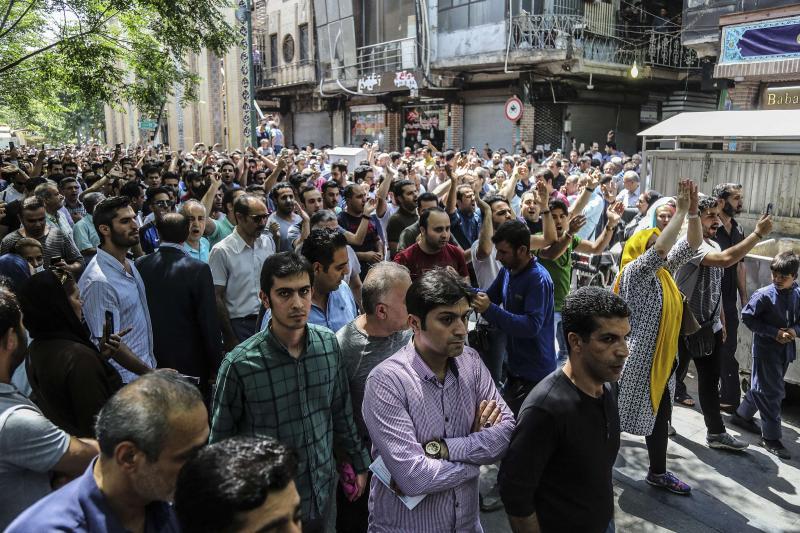Tehran’s Grand Bazaar unrest a harbinger of change to come
Despite the opening of two modern shopping malls in Tehran, the country’s Grand Bazaar has always been the pulse of Iran’s trade and commerce. The bazaar has constantly provided an accurate reflection of the country’s political mood.
The historic Grand Bazaar represents an important segment of the country’s business community. Its members tend to be conservative and opposed to risky interventions in foreign lands. The multitude of small shop owners and proprietors of stalls have proven that, besides being an important segment of Iran’s business world, they can be counted on as a political force to be reckoned with.
The Grand Bazaar owners played a vital role in overthrowing the shah in 1979, a revolution that replaced the monarchy with an Islamic republic. The demonstrators’ cries of “Death to the Dictator” echoed chants of “Death to the Shah” decades ago in the bazaar. By going on strike and closing their shops and stalls, on June 25, the merchants not only demonstrated to the authorities their political disapproval of the situation but showed they carry financial clout by slowing commerce in the heart of the capital to a standstill.
So when the bazaaris went on strike, the ruling mullahs could only take note. For those who remember the role the bazaar played in ousting the shah, this expression of discontent by the bazaaris was not seen as a good omen.
The mullahs who owe much gratitude to the bazaar owners have not forgotten that those who helped bring them into power can also help get them out of power.
With the Iranian economy faltering, demonstrators have taken to the streets, reflecting a resentment of what they see as the government squandering of financial resources in support of foreign military and political misadventures, even if such interventions are presented by the Islamic Revolutionary Guard Corps as being of paramount importance to the regime.
Iranian leaders are trying to quash the protests, knowing full well the far-reaching consequences of bazaar-originated protests. As a result, the mullahs are showing signs of nervousness about the effects that US economic sanctions can have inside Iran.
In Washington, the events in Tehran did not go unnoticed. US President Donald Trump pressed ahead with sanctions on Iran and pushed for other countries to stop importing Iranian oil.
The unplanned demonstrations occurred a day after protests forced two major shopping centres selling mobile phones and electronics in Tehran to close but there is wider unease beneath the surface in Iran after Trump’s decision to withdraw the United States from Tehran’s nuclear deal with world powers.
It wasn’t immediately clear who led the protests. Iran’s semi-official news agencies Fars, ISNA and Tasnim described the protests as erupting after the Iranian rial dropped to 90,000 to the dollar on the country’s black market, despite government attempts to control the currency rate.
Videos on social media showed protesters at the bazaar heckling shopkeepers who refused to close, shouting in Farsi: “Coward!”
The economy and politics are not the only headaches facing the rulers in Tehran. The conservative mullahs are losing some of the authority they previously held over the citizens, particularly women.
During the FIFA World Cup games in Russia there were plenty of Iranian supporters but nary a chador in sight. From looking at the scores of unveiled faces of Iranian women standing amid hundreds of men and shouting their support for Team Melli, the yearning of freedom in Iranian society might be stronger than what the mullahs and the guardians of the revolution can smother.
There comes a time when intimidation and repression do not work. In Iran, the fear through which the mullahs have ruled could quickly cease to be effective. Change is creeping in. That is inevitable as Iranians just wanting better lives.
Claude Salhani is a regular columnist for The Arab Weekly.
This article was originally published in The Arab Weekly.







